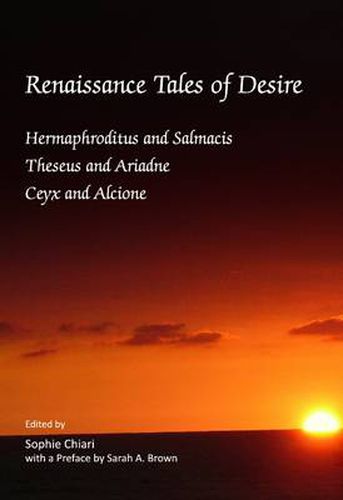Readings Newsletter
Become a Readings Member to make your shopping experience even easier.
Sign in or sign up for free!
You’re not far away from qualifying for FREE standard shipping within Australia
You’ve qualified for FREE standard shipping within Australia
The cart is loading…






This edition of three Ovidian tales translated and partly rewritten in the 1560s (Thomas Peend’s The Pleasant fable of Hermaphroditus and Salmacis, Thomas Underdowne’s The Excellent Historye of Theseus and Ariadne and William Hubbard’s The Tragicall and lamentable Histoire of two faithfull mates: Ceyx Kynge of Thracine and Alcione his wife) calls attention to the possible literary influence of such minor texts on later poets and playwrights like Marlowe and Shakespeare. Indeed, as narrative poems they deal with the popular themes of metamorphosis and desire. Even though they may well have been used as sources for such works as Hero and Leander, Venus and Adonis or A Midsummer Night’s Dream, they have never been re-edited since the sixteenth century. This volume may thus allow Renaissance scholars to rediscover the embarrassment of riches of poems which provide us with new details, developments and perspectives about the original myths, thereby refashioning Ovid’s stories in a typical Renaissance manner.
$9.00 standard shipping within Australia
FREE standard shipping within Australia for orders over $100.00
Express & International shipping calculated at checkout
This edition of three Ovidian tales translated and partly rewritten in the 1560s (Thomas Peend’s The Pleasant fable of Hermaphroditus and Salmacis, Thomas Underdowne’s The Excellent Historye of Theseus and Ariadne and William Hubbard’s The Tragicall and lamentable Histoire of two faithfull mates: Ceyx Kynge of Thracine and Alcione his wife) calls attention to the possible literary influence of such minor texts on later poets and playwrights like Marlowe and Shakespeare. Indeed, as narrative poems they deal with the popular themes of metamorphosis and desire. Even though they may well have been used as sources for such works as Hero and Leander, Venus and Adonis or A Midsummer Night’s Dream, they have never been re-edited since the sixteenth century. This volume may thus allow Renaissance scholars to rediscover the embarrassment of riches of poems which provide us with new details, developments and perspectives about the original myths, thereby refashioning Ovid’s stories in a typical Renaissance manner.